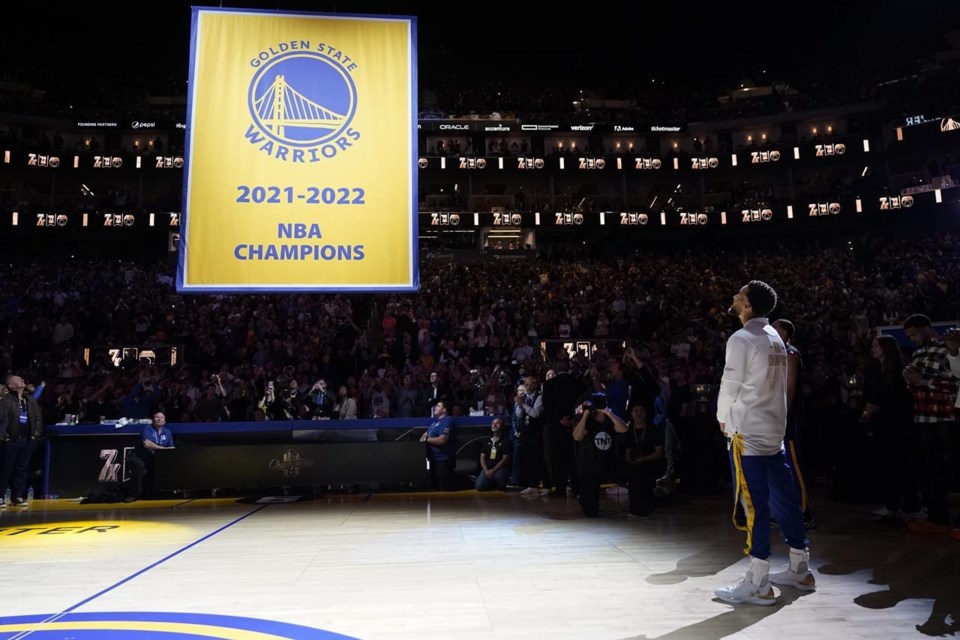The NBA wants more competitive balance and is considering an âupper spending limitâ that would significantly tighten the rules on how much teams can spend each year on their roster, three people familiar with the matter said Friday.
The people, all of whom spoke to The Associated Press on condition of anonymity because no details of ongoing labor negotiations between the league and its players have been made public, said more talks are scheduled about the idea.
The limit essentially could eliminate the luxury tax as an option for teams and would install an absolute ceiling on what can be spent each season. One of the people who spoke with the AP said the National Basketball Players Association is not interested in agreeing to such a plan, the details of which were first reported Friday by ESPN and on Substack by longtime NBA reporter Marc Stein.
The proposal comes at a time where some teams â the reigning NBA champion Golden State Warriors, primarily â are simply spending more than other teams either are willing or able to. The Warriors spent nearly $350 million this past season on salaries and tax, and are projected to spend around $360 million this season.
Thatâs nearly four times as much as the San Antonio Spurs will spend this season, three times as much as the Memphis Grizzlies and a bit more than double the average that the other 29 clubs are on pace to spend this season. And most of those teams â at least 20 of the 30 â aren't in line to go into the tax this season, either.
Talks between the sides on the notion, and other matters such as reinstating the ability for players to go directly from high school to the NBA draft, have been going on for some time between Commissioner Adam Silver, NBPA Executive Director Tamika Tremaglio and others.
The current labor deal between the league and its players is set to expire after the 2023-24 season, though either side can terminate the deal a year early by announcing its intent to do so by Dec. 15.
The leagueâs position on team spending isnât difficult to figure out. If only high-spending teams in major markets can afford to pay huge salary and tax bills, that would create a major competitive advantage. By taking that ability away, better competition in more markets would, in theory, create more revenue â and increase player salaries.
It's easy to see why players wouldnât want any deal that essentially caps how high salaries can climb. The league has a salary cap and luxury tax threshold, though those are hardly deterrents to teams willing to dig deeper than others when it comes to retaining star players.
Golden Stateâs proposed tax and salary bills for the 2023-24 season is about $483 million as of now, but the numbers can change in the coming months based on other personnel decisions. The Warriors have committed more than $600 million in contracts to Stephen Curry, Draymond Green, Klay Thompson, Jordan Poole and Andrew Wiggins alone, including what theyâre making this season.
The NBA is coming off a massive financial year, with revenue topping $10 billion for the first time and basketball-related income reaching $8.9 billion, another record.
âThe numbers did surprise me to a certain degree because it exceeded projections, and the projections represent where we think our business is going,â Silver said in July. âI think itâs quite remarkable from where we came 2 1/2 years ago.â
___
More AP NBA: https://apnews.com/hub/NBA and https://twitter.com/AP_Sports
Tim Reynolds, The Associated Press


